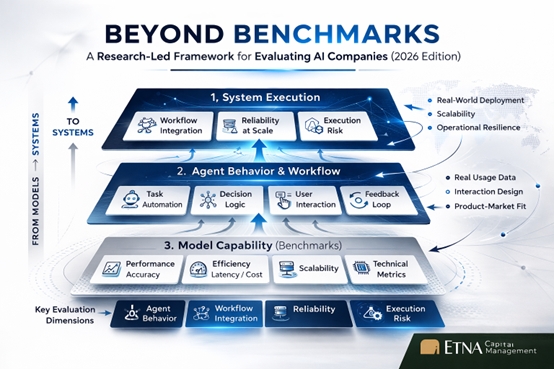The age of artificial intelligence (AI) is upon us, and it is both expansive and formidable. Undoubtedly, it can revolutionise every aspect of a company, including product development, sales, the supply chain, and customer support.
Even while it’s taking longer than expected, the acceleration we’ve witnessed in the past several years isn’t going anywhere. More and more of the world’s largest companies are being powered by artificial intelligence and machine learning. This includes Alexa, which helps you purchase groceries, and Facebook’s algorithm, which determines which news stories you’ll find most interesting
But even if you aren’t Mark Zuckerberg or Jeff Bezos, your company is profoundly affected by how artificial intelligence changes the commercial world. Listed below are five ways in which the advent of machine learning has levelled up the competition for companies of all sizes and in all industries.
- There should be an abundance of data
Data, and lots of data, is what artificial intelligence needs to work. Serious data collecting and administration infrastructure is required to deploy artificial intelligence completely in your firm. This is a common problem that many companies are trying to solve at the moment.
Some such difficulties are
- Finding the most essential pieces of information
- Data sources that can be trusted
- Data collection that doesn’t feel intrusive to customers
- Adapting data-gathering methods to meet unique requirements
- Building a data architecture that can store and make use of data
Recognizing how various machine learning algorithms impact the data you use daily is also crucial. When you find these influential people, your company can usually ride on their algorithm coattails to get more valuable data. If you want to know how to make your content more visible via voice search on platforms like Siri or Alexa, for example, you need to understand these processes. Then, you can design tactics to tackle new technologies.
- Machine Learning Enhances Forecasting
Artificial intelligence is also revolutionising digital marketing with predictive analytics. Companies may learn a lot about their customers’ habits and how they’ll act in the future by analysing massive volumes of data with the help of sophisticated machine-learning algorithms.
With AI-driven predictive analytics, companies may better understand their customers’ buying habits, online behaviours, and social media participation. Incorporating an AI assistant, companies may use this information to develop more personalised marketing strategies, which should increase engagement and sales.
- Accessibility in development will be enhanced via low-code and no-code tech
The hurdle to entrance into the field of software development has been exceptionally high for decades because of coding language. There is a pressing demand for business users to optimize or reinvent their processes, and automation is reaching far beyond the IT department
Consequently, several companies must seek help from outside parties or employ groups of experts. Neither of these options is practical, productive, or economical. The widespread adoption of low-code and no-code artificial intelligence (AI) solutions by businesses in nearly every sector is hardly surprising, given the aforementioned facts.
- Autonomous AI will be made accessible to anyone through consumer technology
Many people have different opinions on what is creating the information science and analytics skills gap, which is detrimental to digital transformation efforts.
Using minimal code and no-code technologies to democratise AI is now trendy, which is good news for businesses. This contributes to the broad adoption and democratisation of AI. With the improvement of these technologies, companies will be able to utilise their present workforce instead of relying on inaccessible data scientists, thereby bridging the skills gap.
- There will be a dramatic shift toward content-generating AI algorithms.
The most recent AI programs can even write their own stories. For instance, according to a Capterra AI survey from 2022, “Content produced by AI or ML software is equally good (or better!) than human-generated content.” Furthermore, 33% of marketers use AI-based content creation or authoring tools
This “generative content” tool allows users to select a topic or category and enter pertinent material into the user interface. Artificial intelligence (AI) will virtually quickly generate tailored content based on the data that has been provided
Artificial intelligence systems achieve this by sifting through vast amounts of data, such as thousands of photographs, words, and other types of media, and then creating content that is a carbon copy of that data. The program “observed” some aesthetic qualities throughout the analysis and tried to reproduce them.
- New job descriptions are emerging
The recent boom of AI technology has created several completely new employment markets brimming with openings, contrary to the gloomy forecasts of those who fear AI would have a negative impact on the labour market. Anyone can see why expertise in developing machine learning systems is a hot commodity in today’s employment market.
Machine learning is one of the most difficult skill sets to master because of the special difficulties associated with it. Eighty percent of companies list the “lack of requisite talent to promote AI adoption” as a major challenge when it comes to creating effective AI systems, indicating how challenging it is to learn. Even though there will always be people looking for a job in the profession, competition and headhunting will be fierce.
A Look at How AI Is Changing Many Markets
Businesses in the healthcare, financial, and marketing industries, among others, may boost their bottom line by utilising AI:
- Image recognition, recognition of speech, predictive analytics, analysing patient data, identifying security risks, and boosting marketing and sales are just a few of the many jobs that make extensive use of AI. For instance, by evaluating market trends, client interactions, pattern identification, and emotion detection, AI may greatly improve sales forecasting.
- Similarly, you may boost consumer engagement and financial rewards by using data mining smartly in email marketing to generate personalized and targeted programs.
- The use of AI has grown in importance in the computer software & web development industries. For example, AI-based recruitment software has substantially simplified the hiring process, including employee management apps, applicant tracking systems, customer relationship management software, enterprise resource planning systems, etc.
With the advancement of data-driven learning algorithms, AI applications have progressed from rule-based systems to more sophisticated and intelligent ones.
In The End!
The deployment of AI is highly situational, unlike previous technologies. Your organisation’s unique objectives and requirements will determine the nature of the effective outcomes. Most companies have a consensus that this technology is here to stay; thus, you should consider its advantages and embrace its use to optimise your brand’s objectives.







